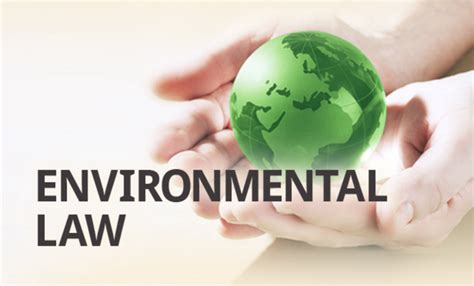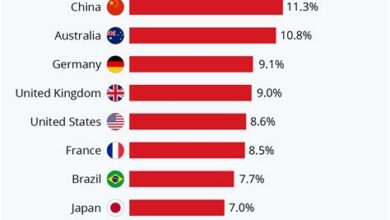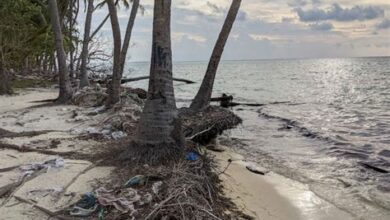Maldives to Implement New Environmental Protection Laws

Explore the current environmental challenges in the Maldives, proposed protection regulations, community consultations, impact on marine biodiversity, and potential benefits for the tourism industry.The Maldives, known for its stunning turquoise waters and picturesque beaches, faces a critical need for environmental protection. With the increasing threat of climate change and rising sea levels, the country is taking significant steps to address its environmental challenges. In response to the urgent need for preservation, the Maldives government is planning to implement new environmental protection laws. These proposed regulations aim to combat the current environmental issues faced by the nation, particularly the impact on marine biodiversity. Additionally, the consultation process with local communities is an essential aspect of this initiative, ensuring that their input is considered in the decision-making process. Furthermore, the potential benefits for the tourism industry cannot be overlooked, as the preservation of the Maldives’ natural beauty is crucial for its appeal to tourists. This blog post will explore the efforts being made to protect the Maldives’ environment and the expected impact on both the local communities and the tourism industry.
Current environmental challenges in the Maldives
The Maldives, known for its breathtaking beaches and crystal-clear waters, is facing significant environmental challenges due to climate change and human activities. One of the main issues is the rising sea levels, which threaten the very existence of this low-lying nation. The increased frequency of extreme weather events, such as storms and cyclones, also poses a threat to the Maldives’ fragile ecosystems and infrastructure.
Another significant challenge is the degradation of coral reefs, which are vital for the country’s marine biodiversity and tourism industry. Pollution from plastic waste and untreated sewage, as well as overfishing, are contributing to the decline of these essential ecosystems. In addition, the loss of coastal vegetation and erosion of beaches are exacerbating the negative impacts of sea level rise and storm surges.
The Maldives government, in collaboration with international organizations and local communities, is working towards addressing these environmental challenges through conservation efforts, sustainable management of resources, and climate adaptation initiatives. It is crucial to prioritize the protection of the Maldives’ natural assets and implement effective policies to ensure the long-term resilience of this archipelago nation.
Proposed environmental protection regulations
The Maldives, known for its stunning beaches and crystal-clear waters, is introducing new environmental protection regulations in an effort to preserve its delicate ecosystems. The proposed regulations aim to address various environmental challenges facing the island nation, including coral reef degradation, plastic pollution, and threats to marine biodiversity.
Under the new regulations, stricter measures will be implemented to control single-use plastics, such as banning plastic bags and packaging materials. Additionally, there will be increased regulations on fishing practices to protect marine life, as well as measures to promote sustainable tourism and eco-friendly activities.
Overall, the proposed environmental protection regulations demonstrate the Maldives’ commitment to safeguarding its natural resources and preserving the beauty of its unique environment for future generations to enjoy.
Consultation process with local communities
One of the crucial steps in implementing new environmental protection laws in the Maldives is the consultation process with local communities. It is essential to engage with the people who are directly affected by these regulations in order to gather their feedback and ensure that their voices are heard.
During the consultation process, government officials, environmental experts, and community leaders will meet with residents of the Maldives to discuss the proposed laws and their potential impact. This will provide an opportunity for the local communities to ask questions, express their concerns, and offer valuable insights that can help shape the final regulations. It is important to create an open and transparent dialogue to build trust and collaboration between the government and the people.
By actively involving the local communities in this consultation process, the Maldives aims to create a sense of ownership and responsibility for environmental protection. Additionally, the insights and perspectives shared by the residents will enhance the effectiveness and relevance of the new laws, ensuring that they reflect the needs and priorities of the people who call the Maldives home.
Expected impact on marine biodiversity
With the implementation of new environmental protection laws in the Maldives, there is an expected positive impact on marine biodiversity. These laws aim to protect the delicate ecosystems of the Maldives, including its coral reefs, marine life, and coastal habitats. By regulating human activities such as fishing, tourism, and waste disposal, the government hopes to reduce the negative impact on the marine environment and promote conservation efforts.
One of the key expected impacts of these new laws is the preservation of coral reefs and marine species. The Maldives is home to a diverse range of marine life, including colorful fish, sea turtles, and sharks. By restricting harmful fishing practices and preventing damage to coral reefs, the new laws aim to safeguard these essential ecosystems and ensure the survival of these species for future generations.
Furthermore, the implementation of these environmental protection regulations is also expected to enhance the overall health of the marine environment in the Maldives. By reducing pollution and protecting important habitats, the laws seek to promote the restoration and regeneration of marine ecosystems, ultimately contributing to the sustainability of the environment and the livelihoods of local communities dependent on marine resources.
Potential benefits for tourism industry
Potential benefits for tourism industry
The Maldives, known for its pristine beaches and crystal-clear waters, is set to implement new environmental protection laws that aim to preserve and safeguard its natural resources. While these regulations are primarily designed to protect the fragile ecosystem of the Maldives, they also hold the potential to significantly benefit the tourism industry, which is the country’s main source of revenue. The new environmental protection laws are expected to enhance the overall appeal of the Maldives as a sustainable and eco-friendly tourist destination, attracting more environmentally conscious travelers and boosting the local economy.
By maintaining the ecological balance and ensuring the sustainability of marine biodiversity, the Maldives can offer visitors a unique and unspoiled natural environment for their leisure and recreational activities. This will not only contribute to the preservation of the country’s natural beauty but also position the Maldives as a leading global eco-tourism destination. The implementation of these new environmental protection laws will further enhance the country’s reputation as a responsible and environmentally conscious tourism hub.
Furthermore, the commitment to environmental conservation and sustainability can differentiate the Maldives from other tourism destinations, creating a competitive edge in the global travel market. As travelers increasingly prioritize meaningful and sustainable experiences, the Maldives can tap into this growing demand by aligning its tourism offerings with the principles of environmental stewardship and conservation. This shift towards eco-tourism not only benefits the environment but also brings economic advantages by attracting a discerning segment of travelers who are willing to spend more on responsible and sustainable travel experiences.





